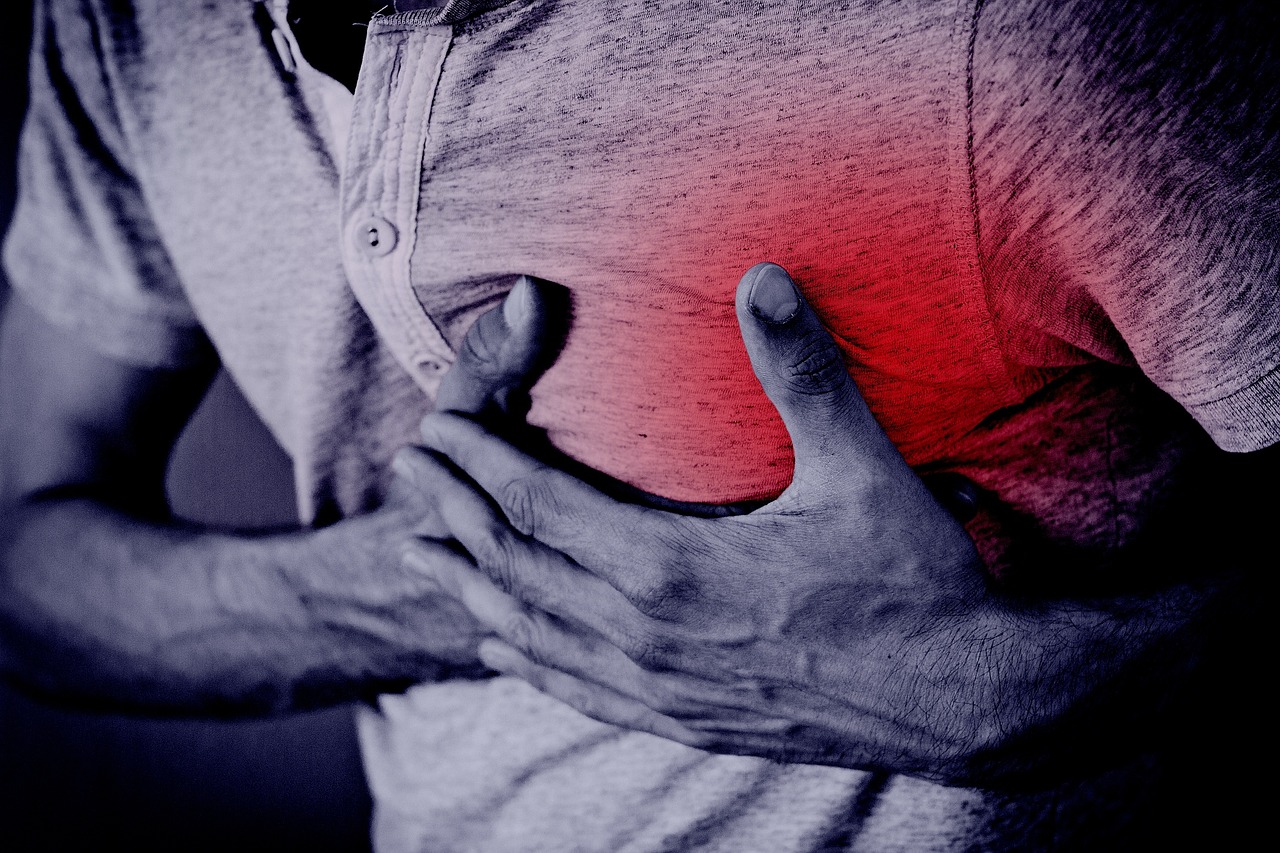
Wednesday, 16 October, 2024
Most of the time, your heart beats regularly without you even noticing. But sometimes, you might feel a skip, flutter, orchange in your heart rate, which can make you worry about your heart health.
These irregular heartbeats, called heart palpitations, can feel unsettling, but they're usually not a sign of something serious. However, if you're having palpitations often or if you already have a heart condition, it's a good idea to see a doctor.
At Kauvery Hospital, our team of expert cardiologists specializes in diagnosing and treating many common heart issues, including heart palpitations.
Heart palpitations can be triggered by several factors, including:
- Low levels of electrolytes
- Magnesium deficiency
- Consumption of caffeine, nicotine, or alcohol
- Feelings of stress, anxiety, or nervousness
How Can I Prevent Palpitations?
To alleviate heart palpitations when they occur, consider the following approaches:
Remain Calm: It's crucial to stay composed when experiencing heart palpitations. Anxiety can worsen the situation by triggering a 'fight or flight' response, which raises heart rate further.
Deep Breathing: Practicing deep, slow breaths helps calm both the mind and the heart. Techniques like diaphragmatic breathing or box breathing (inhale for 4 seconds, hold for 4 seconds, exhale for 4 seconds, hold for 4 seconds) are recommended to signal safety to the body and reduce anxiety.
Vagal Maneuvers: These physical actions activate the vagus nerve, responsible for regulating heart rate. Examples include bearing down as if having a bowel movement, splashing cold water on the face, or forcefully coughing, which can help restore normal heart rhythm by promoting relaxation.
Coughing: A deep, strong cough can sometimes disrupt irregular heart rhythms and encourage a return to normal heartbeat.
Gargling with Cold Water: This action stimulates the vagus nerve and may assist in restoring a regular heart rate.
Splash Cold Water on Your Face: Similar to gargling, the shock of cold water on the face triggers the dive reflex, potentially helping to regulate heart rhythm.
Valsalva Maneuver: This technique involves closing the mouth and nose while attempting to exhale forcibly, which can also stimulate the vagus nerve and regulate heart rate.
Avoid Triggers: Identify and avoid triggers such as caffeine, nicotine, stress, or certain medications that can provoke palpitations.
Stay Hydrated: Ensure adequate hydration throughout the day, as dehydration can contribute to palpitations.
Manage Stress: Practice relaxation techniques like yoga, meditation, or progressive muscle relaxation to reduce stress and anxiety, which are common triggers for palpitations.
Herbal Remedies: Some herbs like hawthorn berry extract or valerian root may have calming effects on the heart. However, consult a healthcare provider before trying them, especially if you have underlying medical conditions or are taking medications.
Wondering How To Stop Palpitations at Night?
Nighttime palpitations can be particularly distressing, interrupting your sleep and causing anxiety. Here's how you can manage them:
Create a Calm Sleep Environment: Ensure your bedroom is cool, dark, and quiet to promote better sleep.
Avoid Stimulants: Refrain from consuming caffeine or alcohol in the evening.
Relaxation Techniques: Practice gentle stretches, meditation, or deep breathing before bed to calm your mind and body.
Comfortable Position: Sometimes, sleeping on your left side can reduce pressure on your heart and help with palpitations.
Now you might also be thinking what kind of Foods To Avoid If You Have Heart Palpitations?
Certain foods can trigger palpitations. To help manage your heart health, consider avoiding:
Caffeine: Found in coffee, tea, chocolate, and some sodas.
Alcohol: Can increase heart rate and cause palpitations.
High-Sugar Foods: Can cause blood sugar spikes and palpitations.
High-Sodium Foods: Can raise blood pressure and lead to palpitations.
Processed Foods: Often contain additives and preservatives that may trigger palpitations.
How To Stop Heart Palpitations Due to Anxiety
Anxiety is a common cause of heart palpitations. To manage them, try these strategies:
Mindfulness and Meditation: These practices can help calm your mind and reduce anxiety.
Regular Exercise: Physical activity can help manage anxiety levels and improve heart health.
Healthy Diet: Eating balanced meals can stabilize your mood and energy levels.
Professional Help: If anxiety is severe, consider talking to a therapist or counselor.
When To Worry About Heart Palpitations
While palpitations are often harmless, certain symptoms warrant medical attention. Seek help if you experience:
- Shortness of Breath
- Chest Pain
- Dizziness or Fainting
- Palpitations with Known Heart Conditions
Understanding diagnosis of palpitations is essential for managing your heart health effectively. If you're worried about your heart, don't hesitate to visit your cardiologist. Heart palpitations usually come and go quickly, so it's helpful to keep track of when they happen and what you were doing at the time. Your doctor will perform a physical exam and listen to your heartbeat to detect any irregularities.
Depending on your symptoms and medical history, your cardiologist might recommend further tests like a blood test to check for thyroid issues, low potassium, or anemia. An electrocardiogram (EKG) is also a common test to evaluate heart palpitations.
Once the cause of your palpitations is identified, your doctor will suggest treatments to help normalize your heartbeat. Often, lifestyle changes can make a significant difference in your heart health. These changes might include quitting smoking, reducing alcohol intake, and ensuring you get enough sleep.
Some common factors, both lifestyle-related and health-related, that can contribute to experiencing heart palpitations are:
- Stress or anxiety
- Intense exercise
- Too much caffeine, nicotine, or alcohol
- Hormonal changes
- Medications
- Illicit drugs
- Certain health conditions can also make you more likely to have heart palpitations, like anemia, thyroid issues, low blood sugar, low blood pressure, or pregnancy.


 Neurosciences
Neurosciences Bariatric Surgery
Bariatric Surgery